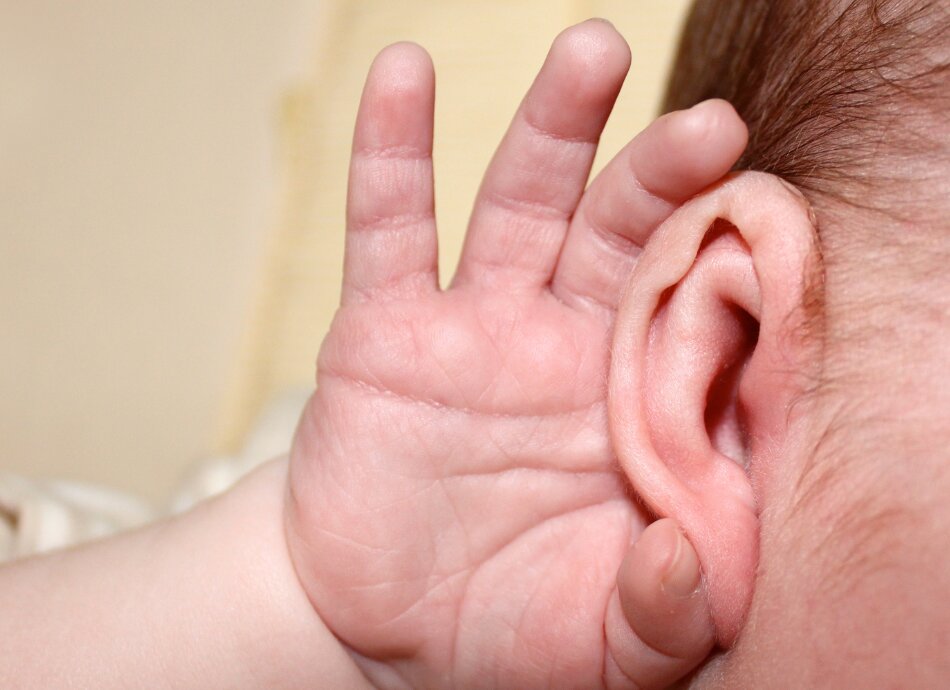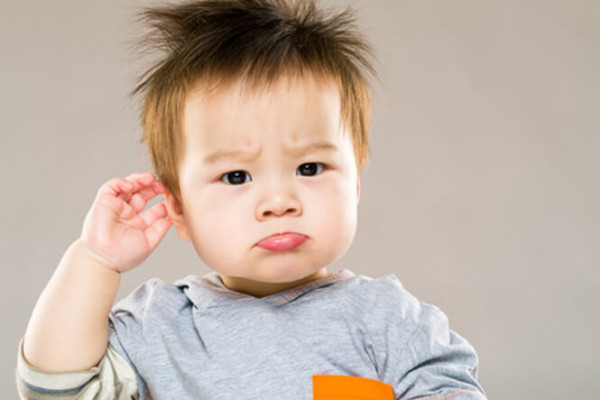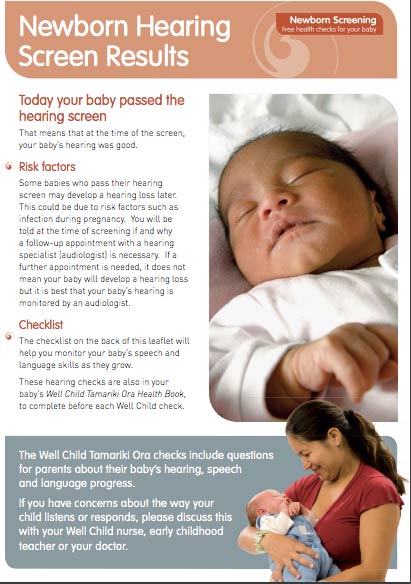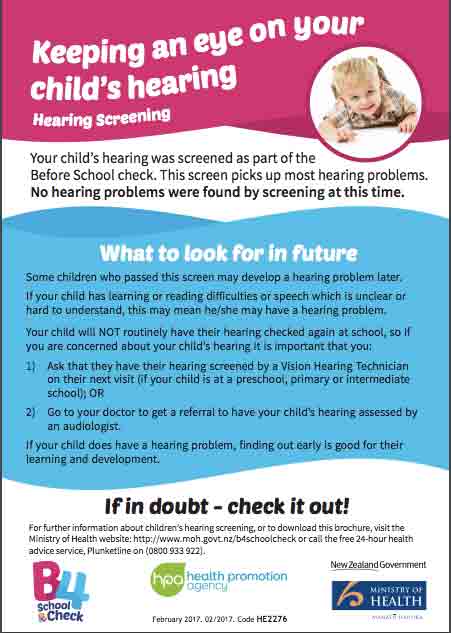Video: Does your child have difficulty hearing?
This video may take a few moments to load.
(Ministry of Health, NZ, 2018)

Low or no data? Visit zero.govt.nz, scroll down the page then click on our logo to return to our site and browse for free.

This video may take a few moments to load.
(Ministry of Health, NZ, 2018)
The most common reason for hearing loss in children is middle ear inflammation (otitis media) or blocked ear canals.
This loss of hearing:
A smaller number of babies (up to 170 every year in New Zealand) are born with permanent congenital (from birth) hearing loss.

Image credit: 123rf
If your child can't hear properly it can affect their learning, concentration and communication. Therefore it's important to detect any hearing loss as early as possible, ideally in the first few months. Unfortunately, many hearing problems in children are not picked up until about 3 years of age.
Research from the Ministry of Health shows that if hearing loss is diagnosed early, and you make use of the options to restore their hearing, your child is likely to have improved language, learning and social development.
For this reason, a newborn hearing test is offered to all babies within the first month of life. Make sure your baby has this simple test. If there are any delays, ask your midwife, Plunket nurse or GP to follow up.
Read more about the Universal Newborn Hearing Screening Programme(external link) from the National Screening Unit.
As a parent, you are the person most likely to notice if your child has a hearing problem. The sooner you discover this, the sooner your child can be tested further and treated if necessary.
Teachers may also notice hearing problems, so it is worth checking with your child’s teacher whether they have any concerns.
The checklists below, which are only a guide, can alert you to potential problems with your child's hearing. If you are worried, print out the checklist, take it to your doctor or nurse and ask about getting your child's hearing tested.
At 4–6 weeks: When there is a sudden loud noise, does your baby ...
At 8–10 weeks: When there is a sudden loud noise, does your baby ...
At 3–4 months: Does your baby …
At 5–7 months: Does your baby ...
At 9–12 months: Does your baby ...
At 15–18 months: Does your child …
At 2–3 years: Does your child …
At 5 years: Does your child …
Source: The WellChild/Tamariki Ora My Health Book(external link) HealthEd, NZ, 2010
Talk to your nurse or doctor if you think your child is not hearing well.
Read more about testing for hearing loss in children.
Newborn hearing screening(external link) National Screening Unit, NZ
Universal Newborn Hearing Screening Programme(external link) National Screening Unit, NZ
Hearing and vision checks for babies(external link) KidsHealth, NZ
Hearing and vision checks for preschool children(external link) KidsHealth, NZ
Hearing and vision checks for school-age children(external link) KidsHealth, NZ
Free hearing checks for children(external link) KidsHealth, NZ
Equipment for children and young people who are Deaf or have hearing loss(external link) Whaikaha - Ministry of Disabled People, NZ
Cochlear implants(external link) Whaikaha - Ministry of Disabled People, NZ
Education for children with hearing loss(external link) Whaikaha - Ministry of Disabled People, NZ
Hearing health checklist(external link) NZ Audiology Society
Deaf Children New Zealand | Tamariki Turi o Aotearoa(external link)
Find your nearest audiologist(external link)
Find your nearest hearing therapist(external link)
Newborn hearing screening – your baby's hearing screen(external link) HealthEd, NZ, 2015 available in the following languages: English(external link), te reo Māori(external link), Sāmoan(external link), Tongan(external link), Chinese Simplified(external link), Chinese Traditional(external link), Hindi(external link), Korean(external link)
Newborn hearing screening – referral to an audiologist(external link) HealthEd, NZ, 2016 English(external link), te reo Māori(external link), Sāmoan(external link), Tongan(external link), Chinese Simplified(external link), Chinese Traditional(external link), Hindi(external link), Korean(external link)
Repeat newborn hearing screen(external link) HealthEd, NZ, 2008
Newborn hearing screening results(external link) HealthEd, NZ, 2022 English(external link), te reo Māori(external link), Tongan(external link), Samoan(external link), Korean(external link), Hindi(external link), Chinese (simplified)(external link), Chinese (traditional)(external link)
Your hearing aids(external link) Oticon, NZ available in the following languages: te reo Māori(external link), Samoan(external link), Tongan(external link)
Keeping an eye on your child's hearing(external link) HealthEd, NZ, 2018 available in the following languages: English(external link), Chinese (simplified)(external link), Chinese (traditional)(external link), Hindi(external link), Korean(external link), te reo Māori(external link), Samoan(external link), Tongan(external link)
Find your nearest audiologist(external link)
Find your nearest hearing therapist(external link)

HealthEd, NZ, 2015
English, Chinese Simplified, Chinese Traditional, Hindi, Korean, te reo Māori, Samoan

HealthEd, NZ, 2018
English, Chinese (simplified), Chinese (traditional), Hindi, Korean, te reo Māori, Samoan, Tongan
![]()
Oticon, N
te reo Māori, Samoan, Tongan
Credits: Healthify editorial team. Healthify is brought to you by Health Navigator Charitable Trust.
Reviewed by: Dr Arna Letica, FRNZCGP, Auckland
Last reviewed:
Page last updated: